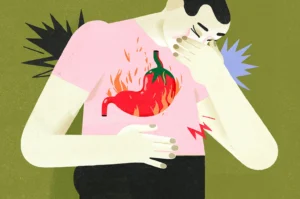We rarely ask ourselves what the Mediterranean diet is. We assume that it is related to what we Mediterraneans eat and that, in addition, it is good for our health.
However, after more than half a century of diverse research, discussions and disagreements about its reality are still alive. Even aspects as important as the concept itself, its essence, and its development, continue to provoke heated discussions between experts and professionals from different disciplines.
What your diet should have to be considered Mediterranean
In this context, we ask ourselves what the Mediterranean diet is. From a very basic medical perspective, we could say that the Mediterranean diet is a dietary pattern recommended by specialists and considered healthy.
It is based mainly on vegetables, with a significant presence of olive oil, and includes moderate or low amounts of foods of animal origin.
From the point of view of nutrition, that is, the effects of certain foods on the body after they have been ingested, there is not much more to say. This definition will do.
The Mediterranean diet is not just a list of ingredients
However, there are important things that we should expand on a little more. On the one hand, the fact that the notion of the Mediterranean diet has undergone a significant and progressive evolution over the last half-century.
It has taken us from what was initially only a heart-healthy dietary pattern to more modern visions that today present it as a local and sustainable dietary model that is part of our cultures and our heritage.
What we are interested in highlighting here is that this evolution has transformed the concept of the Mediterranean diet, taking it from strictly medical and nutritional positions to visions more closely linked to society, culture, lifestyles, and the environment.
All of this is a consequence, very particularly, of its registration as an Intangible Cultural Heritage of Humanity by UNESCO in 2010. Since then, the Mediterranean diet has been understood as a heritage food system that goes far beyond what we eat and includes all the material and immaterial culture that surrounds our food (utensils, spaces, rituals, festivals, and celebrations…).
However, it is difficult to escape from well-established perspectives, such as those related to health. Few things matter more to us than health in this life (and the Covid-19 pandemic has made this clear to us once again).
A diet full of culture
Thus, it is not unusual to see even today visions of the Mediterranean diet stuck in time. These, by medical recommendations, preach a diet based more on what was eaten in the sixties of the last century than on our current diet.
We are missing out on quite a few things along the way. On the one hand, our diet is part of our culture. Thus, the Mediterranean diet must be seen as a living and continuously evolving food system.
This system covers all the links in the chain, from production to consumption, from the field to the table (and even beyond, with recycling and composting and returning to production). Today we do not eat as we did a hundred years ago, nor will we eat as we do today in a hundred years. It seems obvious, but it is not.
These premises, however, clash with visions that are fundamentally focused on health, in which the Mediterranean diet is seen more as a list of healthy ingredients to be consumed daily or weekly, measured in units, grams, or centiliters, than as a food and culinary system with a broad cultural basis.
We don’t eat nutrients, we eat food, and these are inseparable from their inherent cultural baggage. Thus, we tend to focus our efforts and complaints on adherence or non-adherence to the patterns of an idealized diet.
A complex and interdependent food system
Let us remember that the Mediterranean diet pyramid is a recommendation. If it is necessary to recommend it from a medical and nutritional point of view, it may be because we are not eating in the way that is recommended. Or that we are doing so with greater or lesser consumption of specific foods (such as olive oil, for example).
However, products do not only affect our bodies. They also affect our daily lives and our economy… Whether a product such as olive oil, for example, rises or falls in price influences whether its consumption increases or decreases. And this, in the long run, can also affect our health.
We are not addressing the basic fact that if we do not care about those links that are at the beginning of the food chain (protected and well-paid production, adequate distribution, and not in the hands of a few, affordable prices about purchase and consumption…), we will be able to do little for the final links (consumption, repercussions on health…) in isolation.
How to adapt the Mediterranean diet to the mobile era
On the other hand, we cannot forget issues such as when we eat, with whom we eat, and how much time we spend eating. Eating is a social act and we usually try to do it in company.
Even taking photos of what we eat and sending them through social media is a way of communicating, a way of sharing that moment with others, even with those people who are not physically with us at that moment.
Aspects such as whether we eat alone or with others affect the choice of what we eat, the time we spend eating, the quantities we ingest… And all of this has direct consequences on our health that go beyond nutrients.
However, eating in company is not always possible. The working day and our type of work, for example, dictate both our schedules and the possibility of meeting other people to eat in the company. The change in family systems has also led to a greater number of people living alone today, especially older people.
All of these aspects are part of the evolution of our diet, of the continuous transformation of our lifestyles. They shape our eating habits, our social relationships, and, of course, what we end up eating.
In short, the Mediterranean diet is still alive. It is what we Mediterraneans eat (and continue to eat), and it evolves, constantly incorporating and eliminating products, ways, and instruments of cooking or preparation, times and places, and forms of consumption…
There is no doubt that it can be a healthy diet. However, we need to look at it from the perspective of what we eat today (and not just what, but also how, when, why, or with whom…) and work from there.
Perhaps it is necessary to “rethink” the Mediterranean diet. We must work throughout the food chain, trying to observe the transversality and omnipresence of food. And, above all, not forgetting that society is not a laboratory in which we can act in isolation. From this point of view, there is still much to do and to discuss.![]()























+ There are no comments
Add yours